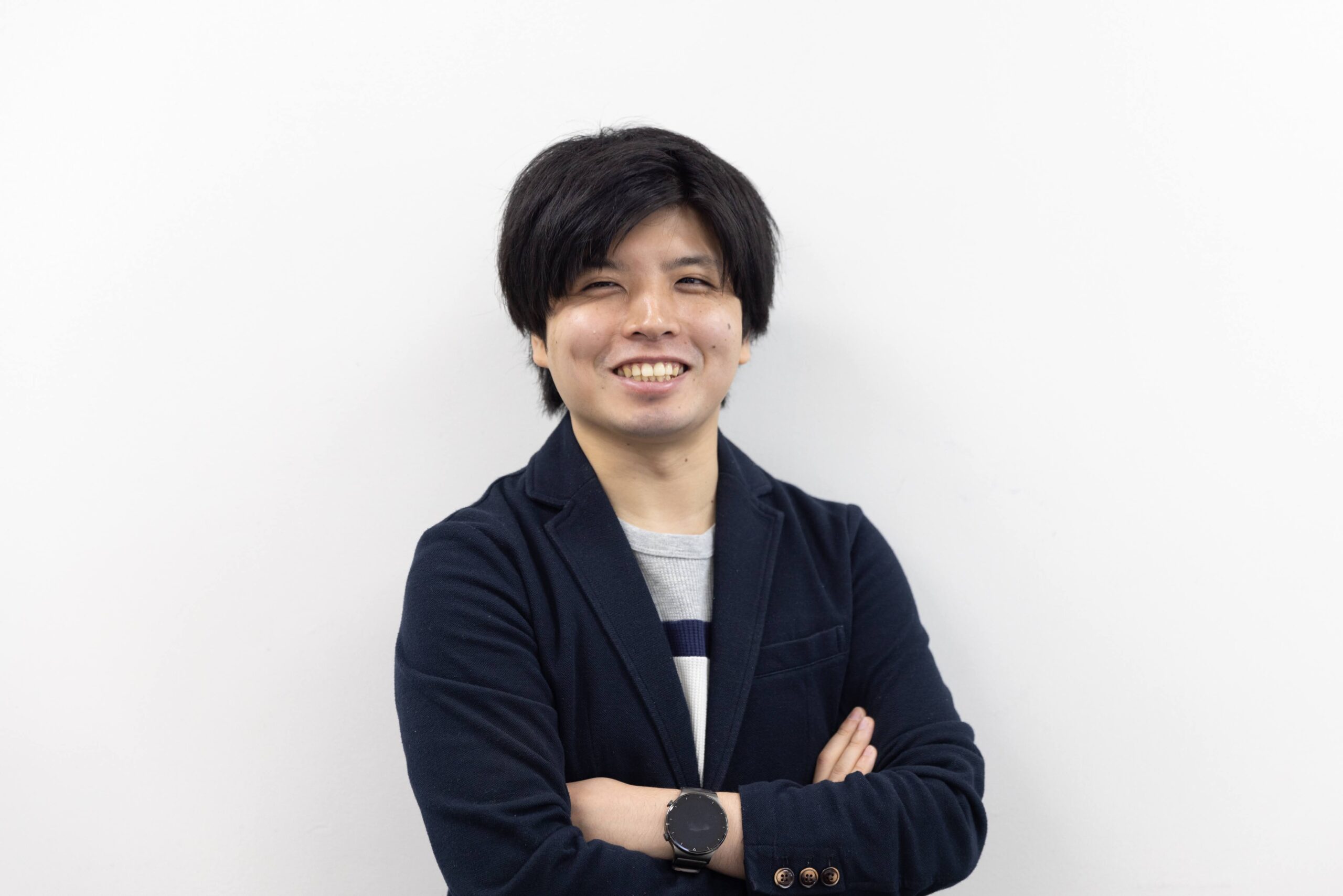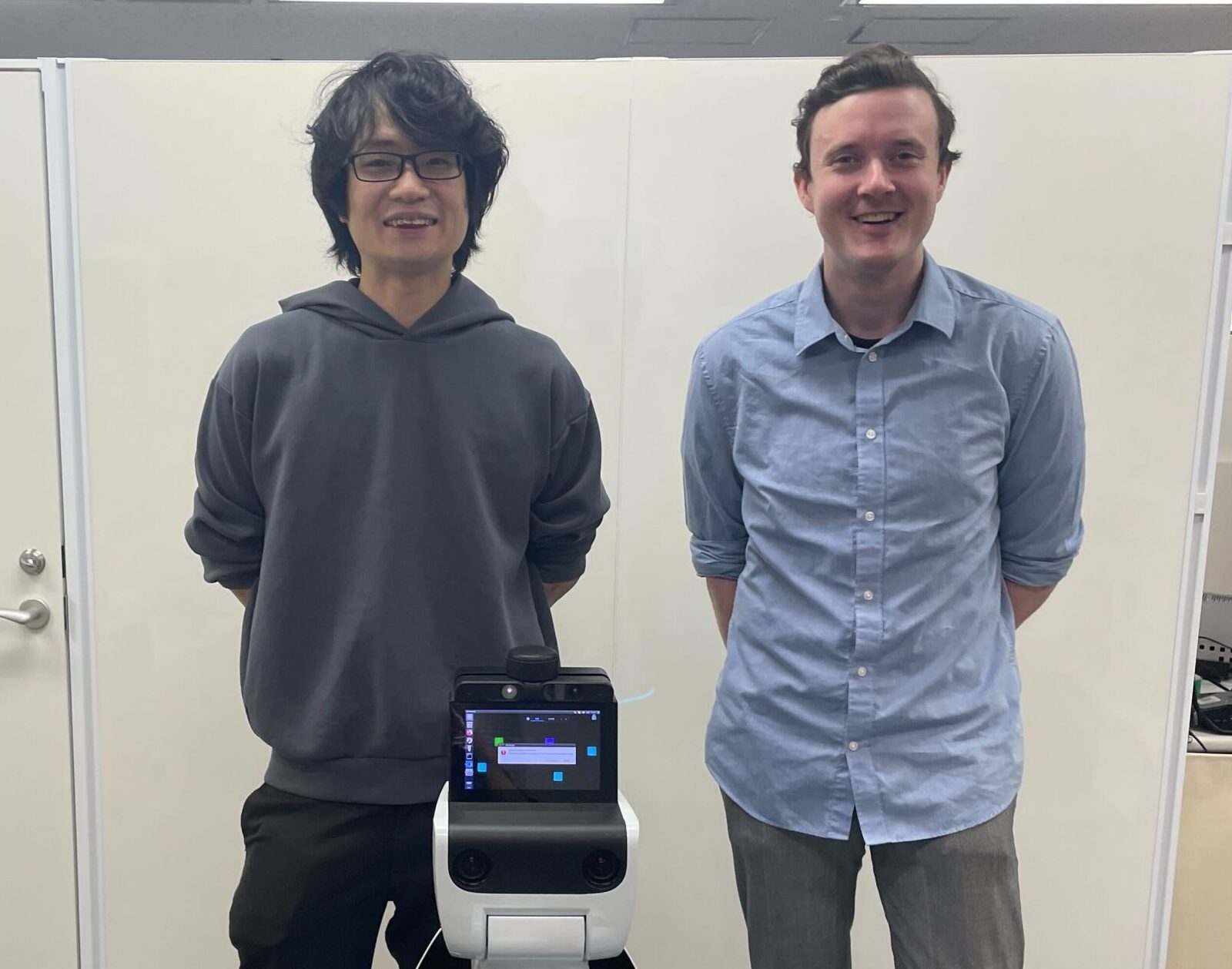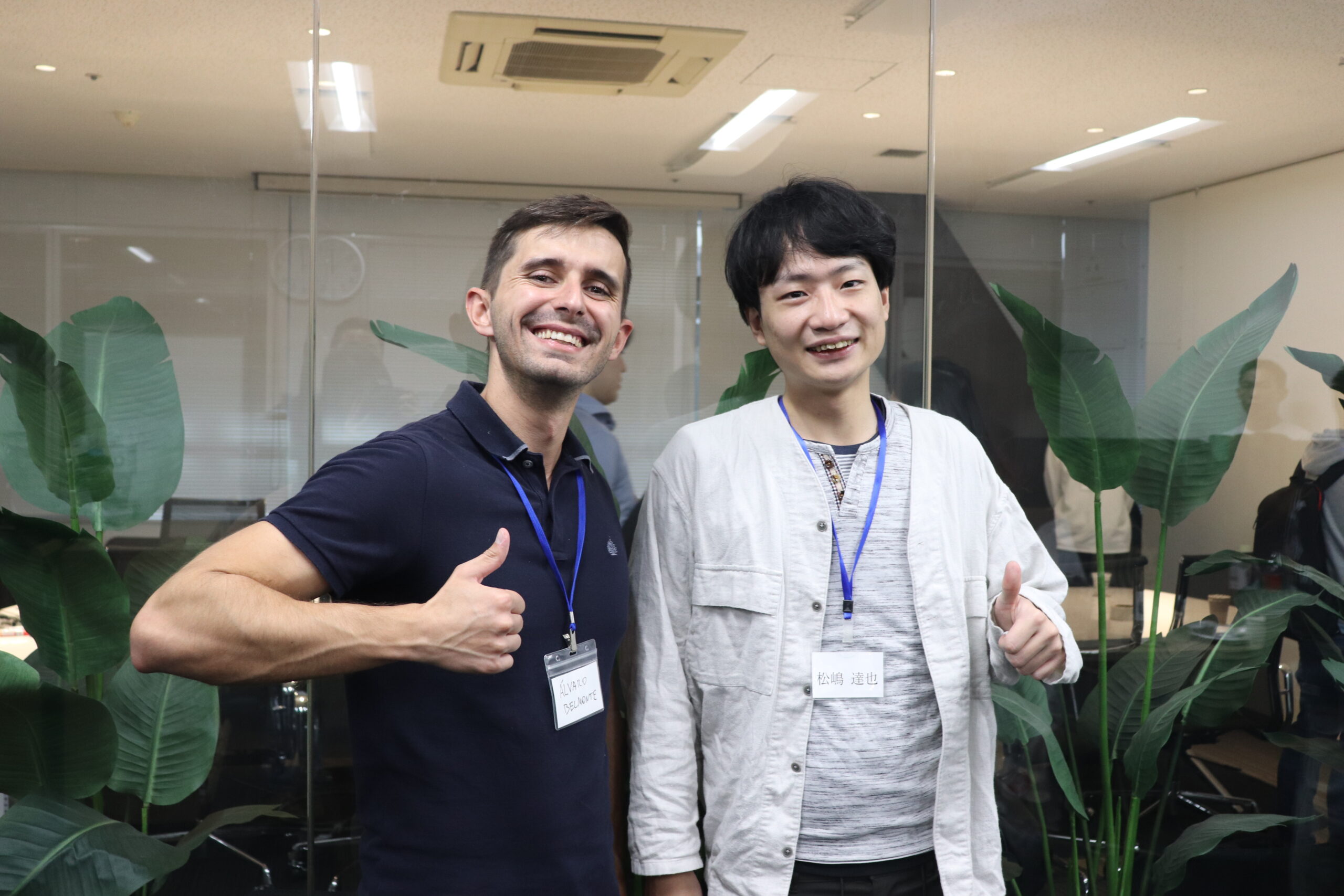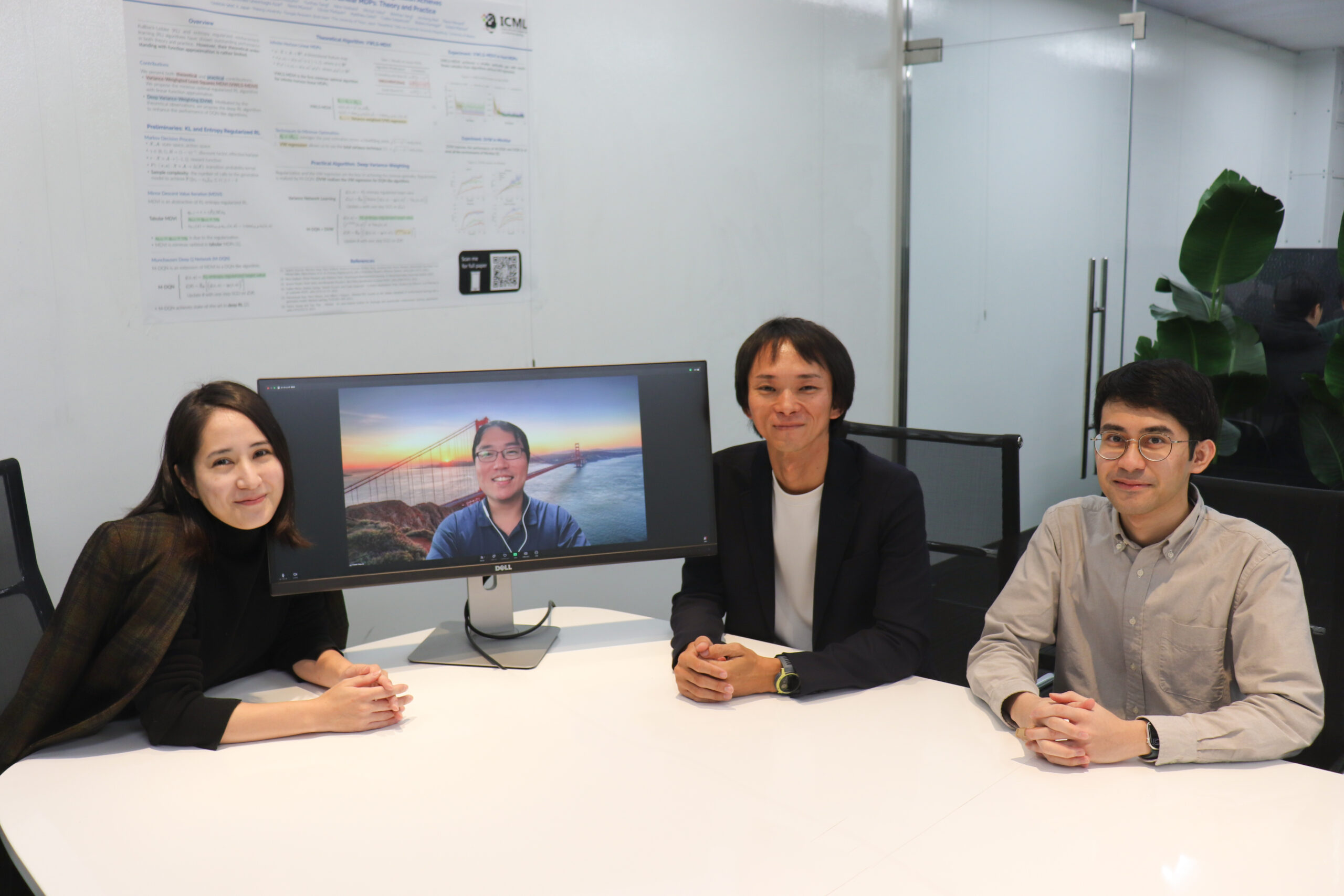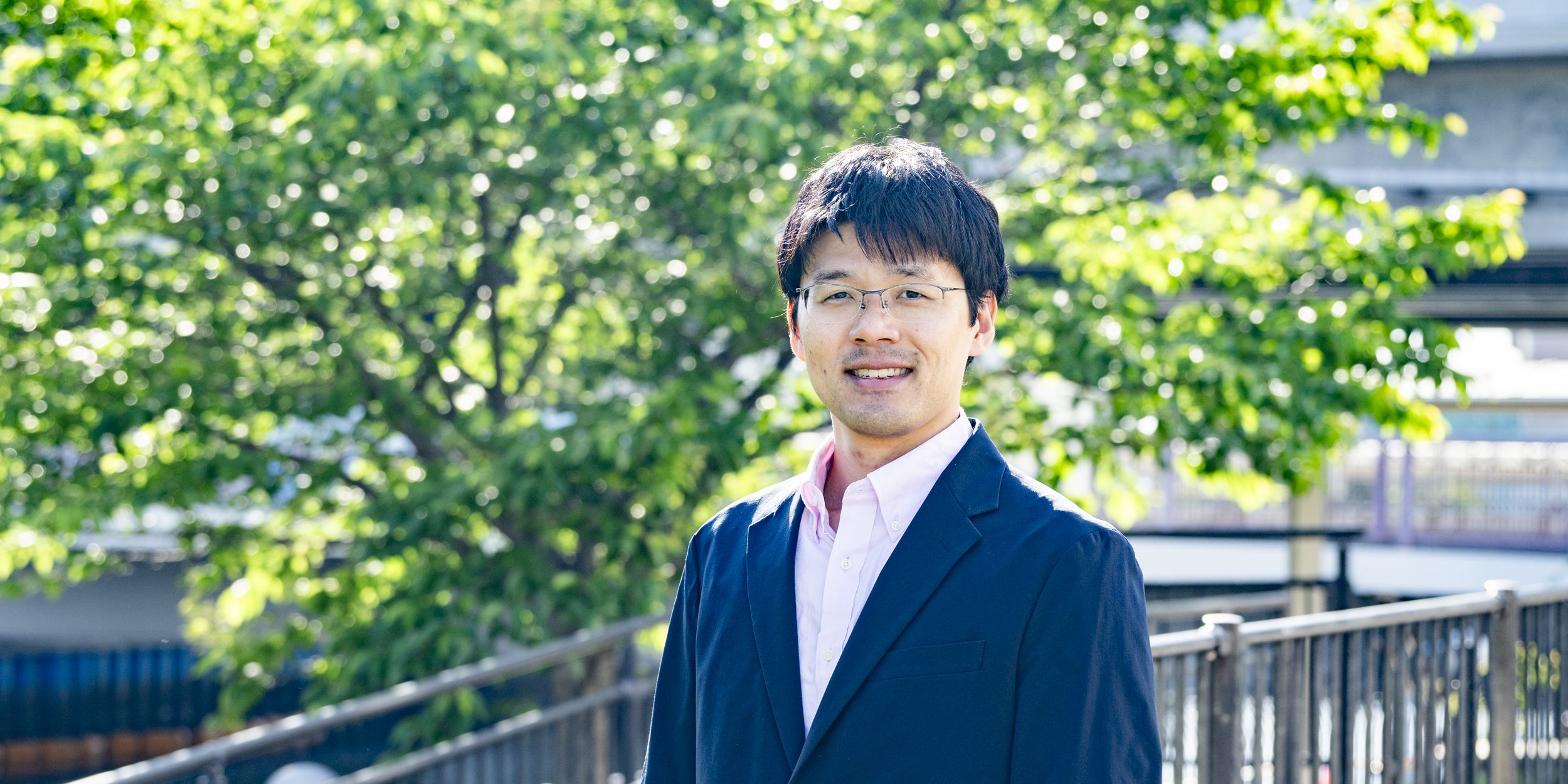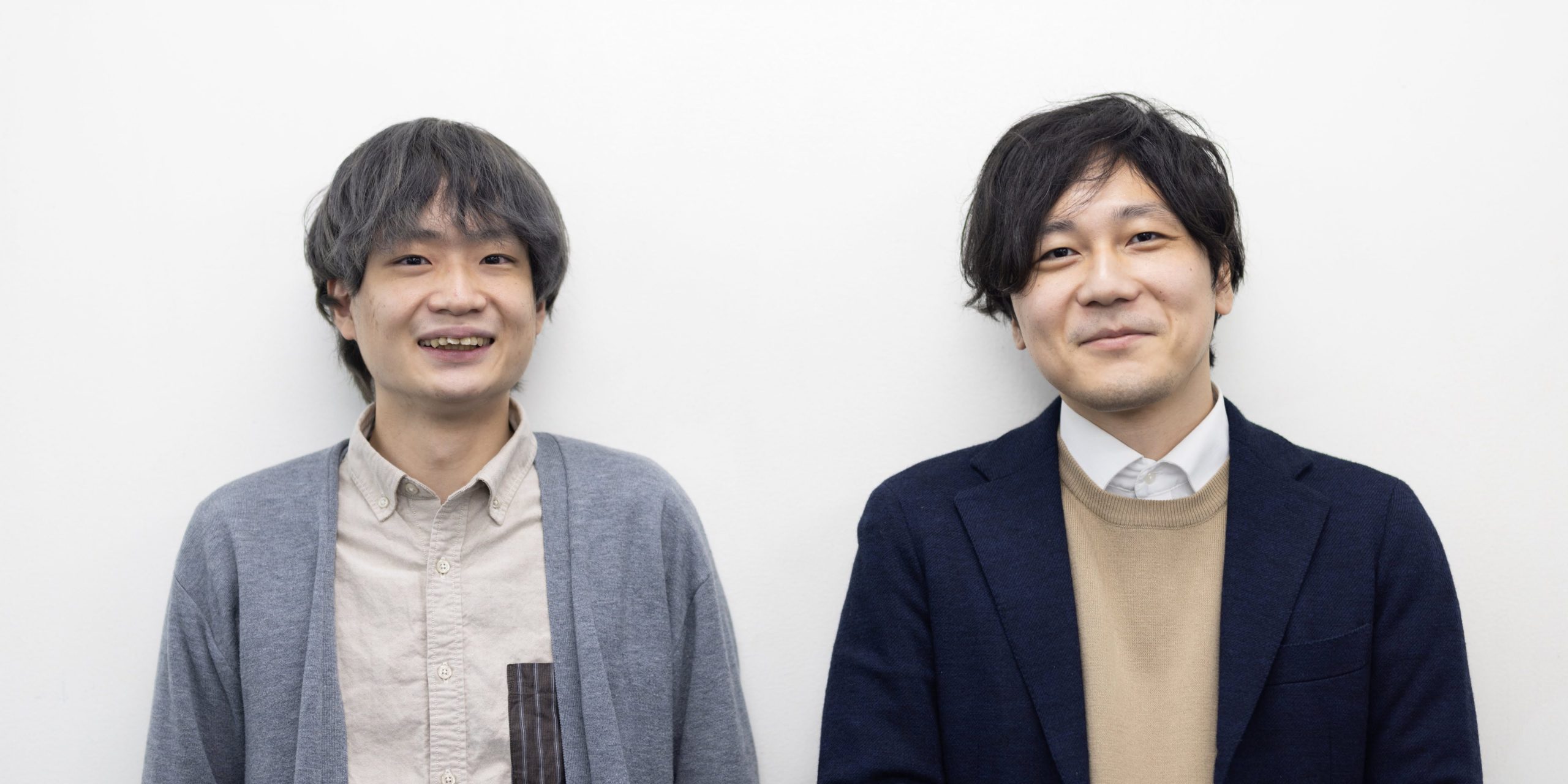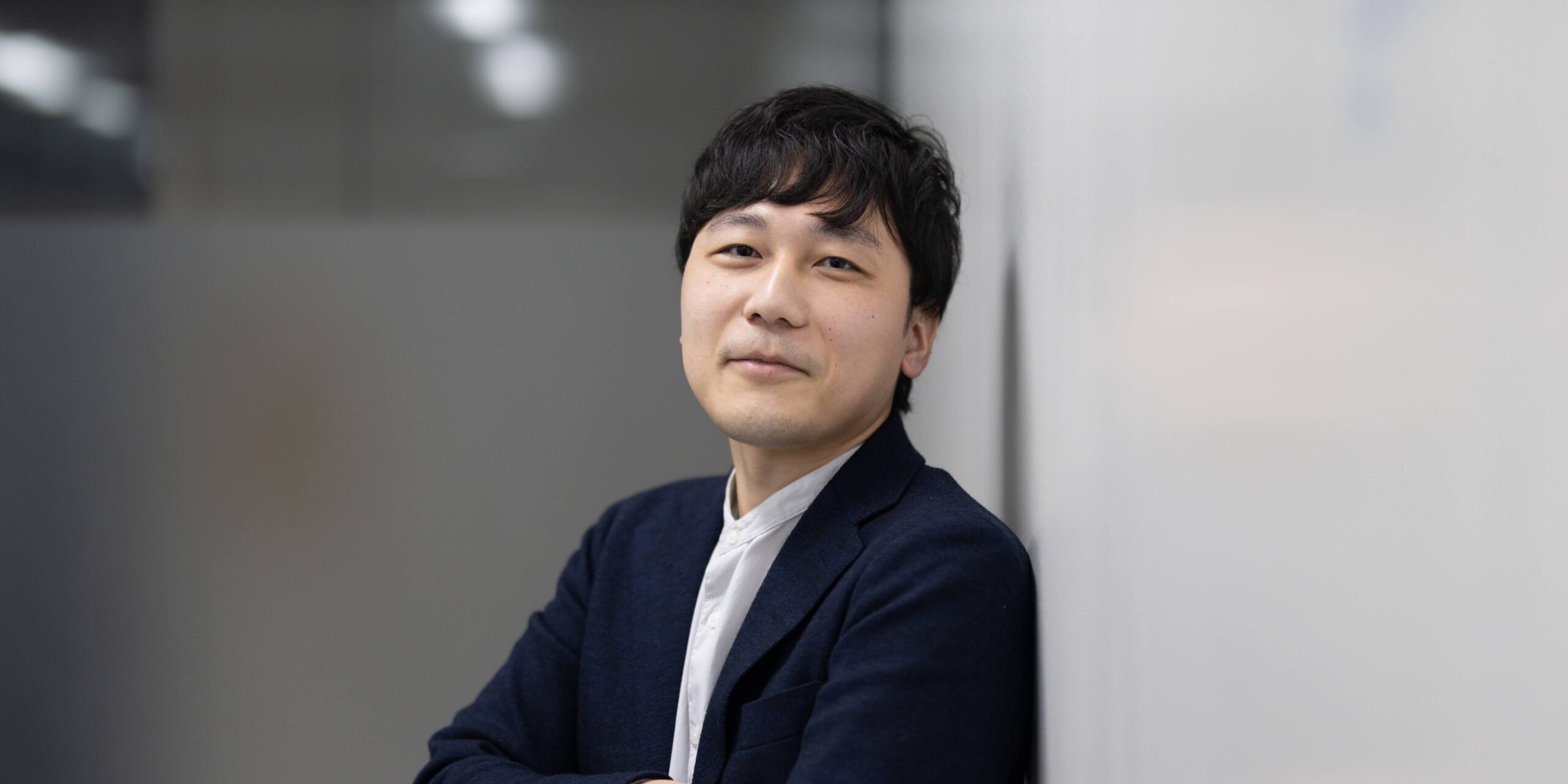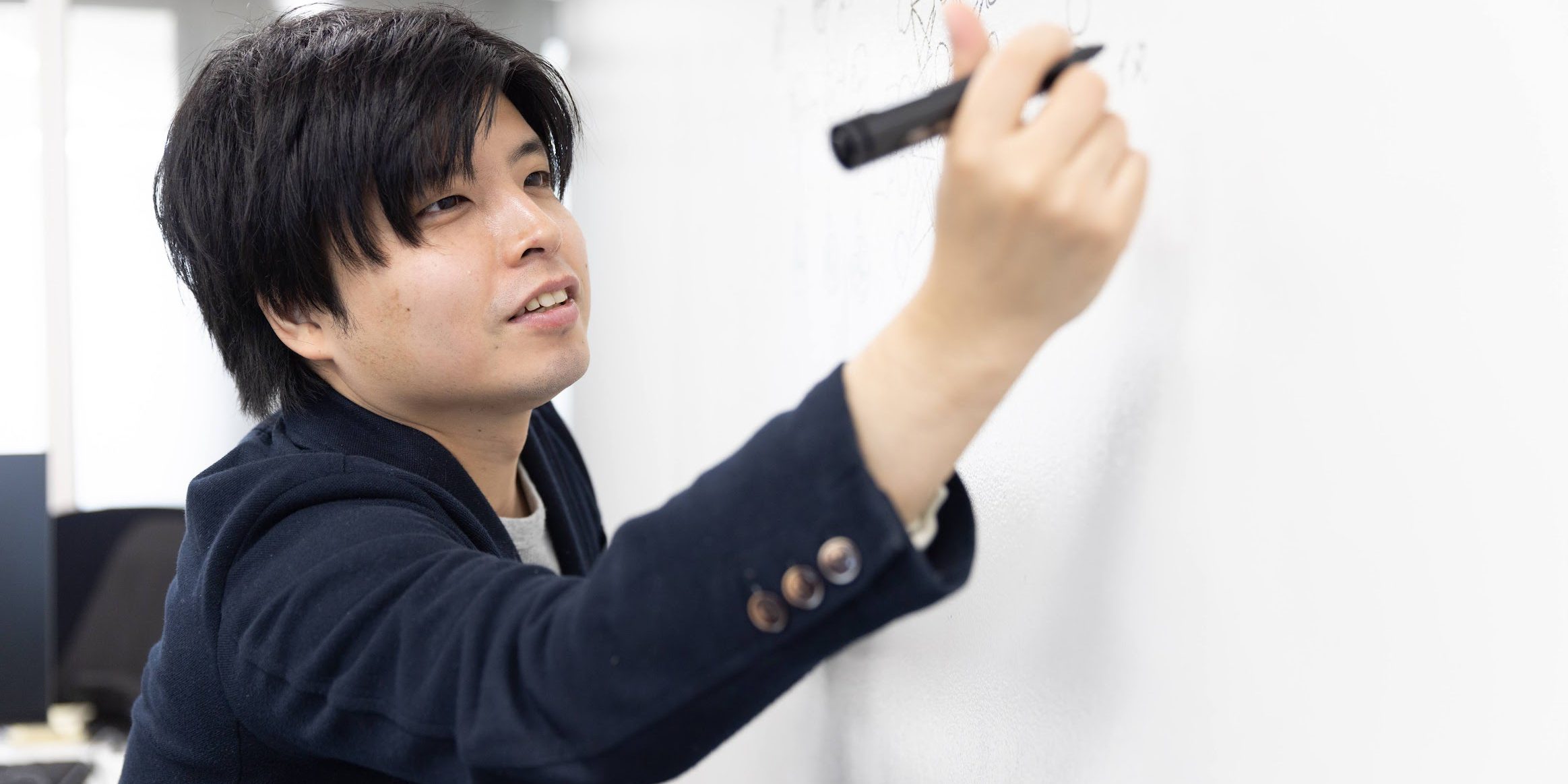Matsuo Lab. has been conducting research with the vision of ” Creating Intelligence.
In the first half of this article, we reported on the “world model,” which is an important research theme in creating intelligence. In the second half of this article, we asked Masahiro Suzuki, a specially-appointed assistant professor at the Matsuo Lab, about the research environment at the Matsuo Lab and his own thoughts. (The interview with Mr. Suzuki will be delivered in two parts, Part 1 and Part 2. Click here for the first part)
<The unanswerable question of “Creating Intelligence. Diverse opinions promote the development of discussion.
What is the Matsuo Institute’s unique style in promoting research?
From the basic research side, what makes the Matsuo Lab unique is its passion for “creating intelligence” and its diversity.
Regarding the former, a very unique feature of the Matsuo Lab is that we , including Dr. Matsuo, can freely and seriously discuss “what we should do to realize intelligence. This is a characteristic of the Matsuo Lab, as most artificial intelligence research involves finding a problem to be solved and then working on that problem.
Regarding the latter, I believe that we place great importance on accepting different ideas, because diversity cannot be created if all people have the same way of thinking. Although we all share the same passion for “creating intelligence” and the same ideas about the global model, we often have different opinions about the details, and sometimes our opinions differ from those of Dr. Matsuo.
In a typical laboratory, there is often a division into two groups: those who work in accordance with the direction indicated by the professor, or those who work on completely separate things. However, the Matsuo Lab is a rather unusual laboratory in that while there are many different ways of thinking, they all share the same fundamental idea that this is important. I think it is quite a rare laboratory.
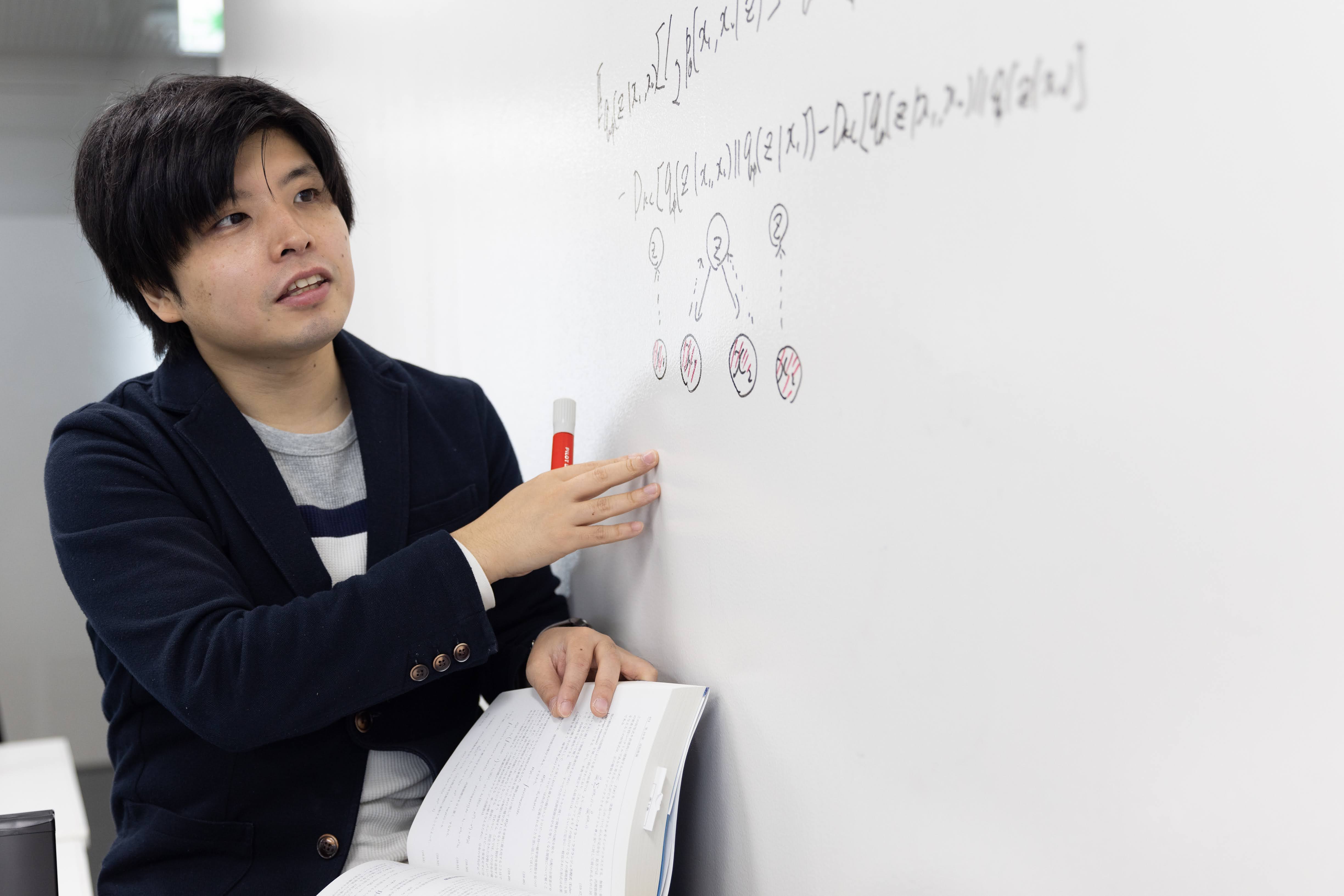
Why does the Matsuo Lab emphasize diversity in its research environment?
This is because there is no definitive answer at this point to the question, “How can intelligence be realized?”
Since no one knows yet how to achieve intelligence, members often do not completely agree on how to achieve it. However, these different opinions are what encourage the development of discussions.
At the same time, this is a part that applies to the entire domain of artificial intelligence. For example, in the field of natural science, the world has been clarified to a great extent through the accumulation of research to date, so we can further develop this knowledge and advance our research toward the “right answer.
But in the area of artificial intelligence, no one has achieved the goal of achieving human-like intelligence, so no one knows if the direction in which research is currently going is the right one, and it is not possible for us to judge which is the right one today, given the many different ways of thinking about intelligence (*).
In this sense, I often feel that older researchers have more respect for younger researchers because the opinions of those in authority are not always correct. We naturally have respect for other researchers as well. When I see such a culture, I think it is a rather liberal and good research area.
Strictly speaking, intelligence is a natural phenomenon, so there must be a “correct” answer. However, in order to find out the answer, it is necessary to formulate a hypothesis and verify whether the hypothesis is correct or not, just as in other natural sciences. Various hypotheses on intelligence have been considered, but few of them have been verified. The reason is that there has been no way to verify such intelligence hypotheses. With the recent development of deep learning and world models, it has finally become possible to take a “constructivist approach,” in which intelligence is known by creating intelligence. In this sense, it can be said that the attempt to unravel intelligence has just begun.
To make robots a reality, we must first have intelligence.” The origin of his commitment to artificial intelligence research.
Why did you agree with the vision of “creating intelligence”?
I have a strong personal commitment to “realizing artificial intelligence”.
I was originally interested in robots, but there was a major turning point when I decided that I wanted to “realize intelligence. That was when I was in high school and saw a video of a biped robot.
In the video, the robot says, “I can easily go down the stairs,” but then falls down the stairs with all his might. I was shocked to see the robot continue to talk even though it had fallen down. The staff was in a panic to clean up the mess, but the robot kept talking. It looked like a human walking around, but I thought that its head was not so well developed.
When I saw this, I thought, “Shouldn’t the robot’s head, or artificial intelligence, be done first?” So, at university (my undergraduate and master’s years were spent at Hokkaido University), I entered the information science department to do research on artificial intelligence.
Q. What are some of the aspects of artificial intelligence research that interest you, Mr. Suzuki?
My current interest in realizing artificial intelligence is integration.
We have done enough research on the functions and learning of each of them, but I am interested in how to integrate them to emerge better intelligence.
The importance of integration itself is often talked about in various situations, but the important point of “how to integrate in order to make it work in a way that actually works” is often overlooked. In recent years, it has become difficult to learn everything about infrastructure models. I would like to conduct research on how to combine such learned knowledge with knowledge from other models to create better intelligence.
Based on previous research,eachapproach will be explored inits ownway.
How exactly are you conducting your research?
The first step is to find prior research on which to base our work.
Whether it is to find a specific problem to solve or to base the research on a hypothesis that “this is how it should be,” we will read a variety of papers.
In both artificial intelligence research and natural science research, prior research, which is the accumulation of knowledge from predecessors, is extremely important. Especially in artificial intelligence research, it is impossible for a genius to create intelligence completely from scratch. Therefore, it is basically required to follow previous research. We are told to read many papers, and that is our policy.
Or, as mentioned above, since we do not know the optimal solution to achieve intelligence, perhaps we may need to go in a direction that is very different from prior research. In such cases, it is still important to read many papers, because it is necessary to clarify which points are different from prior research.
How do you proceed once you have decided on a base thesis?
The most common approach is to apply the methods used in one research field to another. However, even if the method is applied to another research field, there will always be problems, so the process involves trial and error while solving the problems.
If the original problem set is too simple, or if there is a point where these problems are not taken into account, we propose a new method, saying, “This is what we should do. This is how we often proceed with our research.
However, as I mentioned “diversity” at the beginning, there are various approaches within the Matsuo Laboratory.
I tend to start my research from a certain philosophical point of view, such as “this is how intelligence should be”. However, there are other researchers in Matsuo Lab who conduct their research while setting up specific problems. Again, in the end, the question “What is intelligence? I repeat, in the end, no one knows what intelligence is, so there are many different ways to solve the problem.
Do you have time for discussion in the lab?
Apart from regular meetings in the laboratory, we have regular discussion time with other members. Even though we are working on different research projects, we are able to deepen our thoughts by talking about our research ideas and abstract ideas, and at the same time, we are able to improve our research by incorporating the opinions of others.

Photo circa 2018, discussion with members at their seats.
Wall whiteboards have been installed in every room at the Matsuo Lab.
Student teaching is also flexible. Translated R. Sutton’s textbook this year.
What exactly do you do throughout the year?
Outside of research, I write papers, manage lectures, write books, and supervise students.
The Matsuo Lab publishes AI- and ML-related international conferences such as AAAI, IJCAI, ICML, NeurIPS, and ICLR. I am often busy around September~October and January~February when there are deadlines.
I also prepare for various lectures in lecture management, such as ” DeepLearning Fundamentals ” and ” World Models and Intelligence “.
I am also a book author, and have written several books, including single-authored, co-authored, and translated works. Recently, I published a translation of R. Sutton’s “Reinforcement Learning.
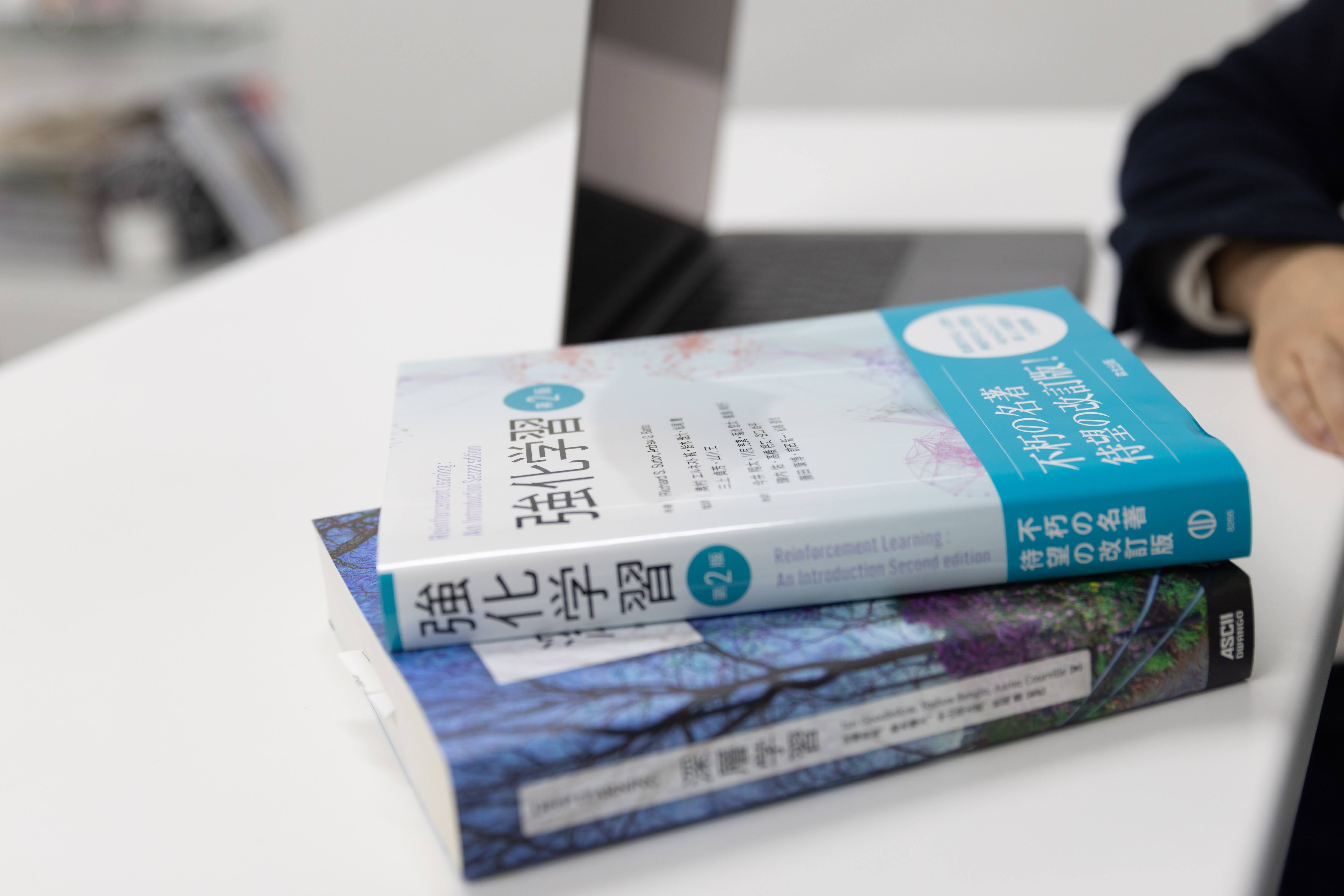
Reinforcement Learning (2nd Edition)” by R. Sutton, supervised and co-translated by Mr. Suzuki.
In terms of student guidance, each group will be divided into groups, and I will be the main supervisor for the students in my charge.
However, we are not completely enclosed as a group, and we are conscious of being fluid in this area, allowing other researchers to see our students depending on their research.
Although there are other labs that use a group system for student guidance, I feel that it is very much like the Matsuo Lab to be fluid and okay with it. The most important thing for students is to achieve results, so we try to make it possible for them to interact with a variety of people in the lab.
What is the ratio of each?
Roughly 50% is research and 50% is lectures and student teaching. However, as mentioned earlier, what we do changes depending on the time of year, so the ratio may fluctuate in such cases.
To the research environment of the Matsuo Institute, where there are no restrictions on the content of research.
Why did you decide to stay at Matsuo Lab after graduating from the doctoral program?
When I graduated, there were several other places I was offered, and to be honest, I was very confused.
However, when I thought about where I could do what I wanted to do in the end, I thought that Matsuo Institutewastheone that really thought about “realizing intelligence,”and I feel that it has the environment and facilities to make that happen.
This is your seventh year at the Matsuo Lab since joining in 2015. What is the reason why you have continued your research at the Matsuo Lab for so long?
The main reason is that we are close in the direction of what we are aiming for and that there are no restrictions regarding the specifics of our research.
As I mentioned earlier, diversity is a good thing at Matsuo Lab, and they allow us such freedom.
What has changed and what has remained the same at Matsuo Lab?
Dr. Matsuo’s motivation and passion have not changed. I think it is truly amazing.
In terms of changes, the size of the laboratory and the scope of what we can do are getting bigger and bigger. However, I don’t feel that there has been a major change in the fundamentals. I feel that there have been some changes in the way we do things, but I don’t think that the fundamental desire to “realize intelligence” and the passion we put into it have changed much in the laboratory as a whole.
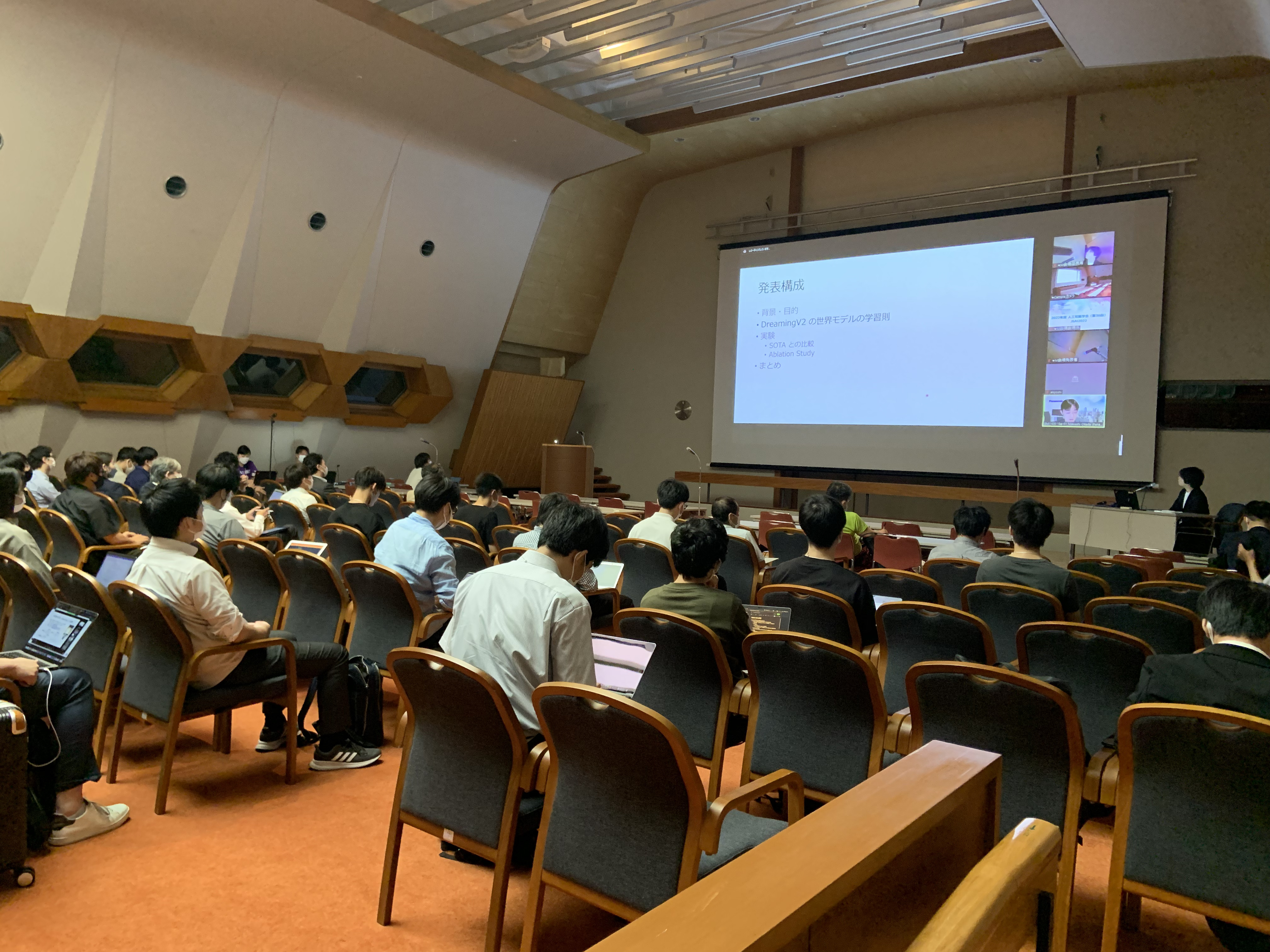
Organizer of the Organized Session “World Models and Intelligence” at the 2022 National Conference on Artificial Intelligence
Photo shows him chairing the Organized Session and listening to the presentations of other speakers.
We would welcome different opinions that break through existing discussions.
What kind of people would you like to work with?
From the perspective of realizing diversity, we would like to have people who think “this method is different” or “there are other ways of doing things” to join the Matsuo Lab. I think it will be fun for them to join us because they will have an environment in which they can discuss many things. While empathy for the realization of intelligence is a prerequisite, we would love to have discussions with people who have different ways of thinking.
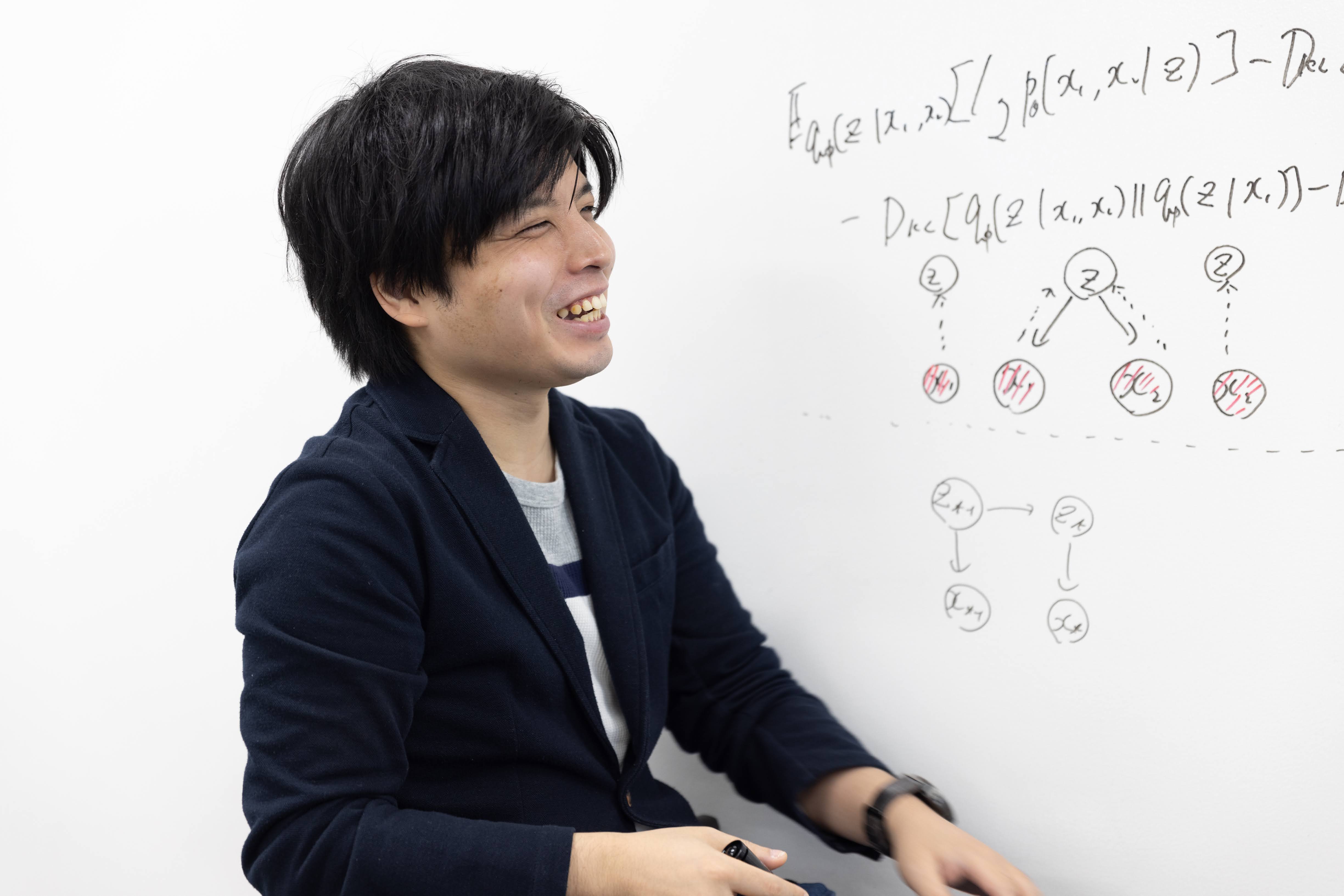
Matsuo Lab is looking forward to hearing from researchers who are serious about working toward realizing our vision of “Creating Intelligence”. If you are at all interested, please contact us for a casual interview.
Masahiro Suzuki / Project Assistant Professor, Matsuo Laboratory, The University of Tokyo
career
- Mar 2015 Completed Graduate School of Information Science and Technology, Hokkaido University
- Mar 2018 Completed Graduate School of Engineering, The University of Tokyo
- Apr 2018-Jul 2020 Specially Appointed Researcher, Graduate School of Engineering, The University of Tokyo
- Aug. 2020- Specially Appointed Assistant Professor, Graduate School of Engineering, The University of Tokyo
- Other concurrent positions︓Technical Advisor, Denso Corporation; Visiting Researcher, Ritsumeikan University
(one’s) (special) field (of study)
- Transfer learning, deep generative models, multimodal learning
Awards
- Information Processing Society of Japan Paper Award, Information Processing Society of Japan Journal Special Prize, and
- Student Incentive Award, WBAI Incentive Award, National Conference on Artificial Intelligence, Japan
- Awarded by the Dean of the Graduate School of Engineering, The University of Tokyo, for his research.
Other Activities
- Lecturer of “Fundamentals of Deep Learning,” “Deep Generative Models,” “World Models and Intelligence,” etc.
- Supervised translation (compilation of translations) and assigned translations of “deep learning” and “reinforcement learning
==============================================
In the first part of this article, we will tell you about the “Global Model” that the Matsuo Institute is promoting for research.
Please read it as well.
◆ What is the ” World Model”? Why Matsuo Lab. is promoting research to realize intelligence. (Part 1)
Applications for Research Scientist, Assistant Professor, and Lecturer positions at the Matsuo Lab are available here.
Masahiro Suzuki will be a speaker at “The Global Model: Overview and Potential Applications” (Tuesday, December 13, 2022). Click here for details .
Matsuo Lab Careers – If you are interested in a researcher or staff position, click here.
